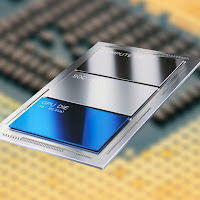Intel Abandons "Revolutionary" Royal Core: Beast Lake Canceled, Project Dismantled
In a shocking turn of events, Intel has reportedly scrapped its ambitious "Royal Core" project, canceling the upcoming Beast Lake architecture and dividing the remaining technologies into smaller, separate endeavors.
This news, originating from a leak by Moore's Law Is Dead (MLID), throws Intel's future CPU roadmap into uncertainty. Royal Core, spearheaded by renowned chip architect Jim Keller (formerly of AMD Zen fame), promised to revolutionize Intel's performance and efficiency.
Beast Lake Axed, Royal Core Dispersed
Beast Lake, envisioned as the first full realization of Royal Core, was rumored to deliver a massive single-core performance leap through its innovative "Extra Big" cores. The flagship model was expected to feature four of these powerful cores alongside up to 32 E-cores, potentially totaling 36 cores.
However, Intel's alleged cancellation of Beast Lake signals a major setback. Instead of a unified implementation, key Royal Core technologies like "Rentable Units" will be dispersed across future architectures. This piecemeal approach casts doubt on whether we'll ever witness the full potential of Keller's vision.
Intel's Uncertain Future
While Intel remains focused on its upcoming Arrow Lake (desktop) and Lunar Lake (mobile) architectures, this development raises serious questions about their long-term competitiveness, especially against Apple's M-series chips.
Key Takeaways:
- Intel cancels Beast Lake, the first architecture meant to fully implement Royal Core.
- The Royal Core project is being dismantled, with its technologies distributed across future architectures.
- Intel's long-term CPU roadmap and competitiveness are now uncertain.
- This news should be treated with caution until officially confirmed by Intel.
The cancellation of Beast Lake and the dismantling of Royal Core mark a significant blow to Intel's ambitions. It remains to be seen how these changes will impact the company's future CPU offerings and its ability to regain lost ground in the competitive processor market.


